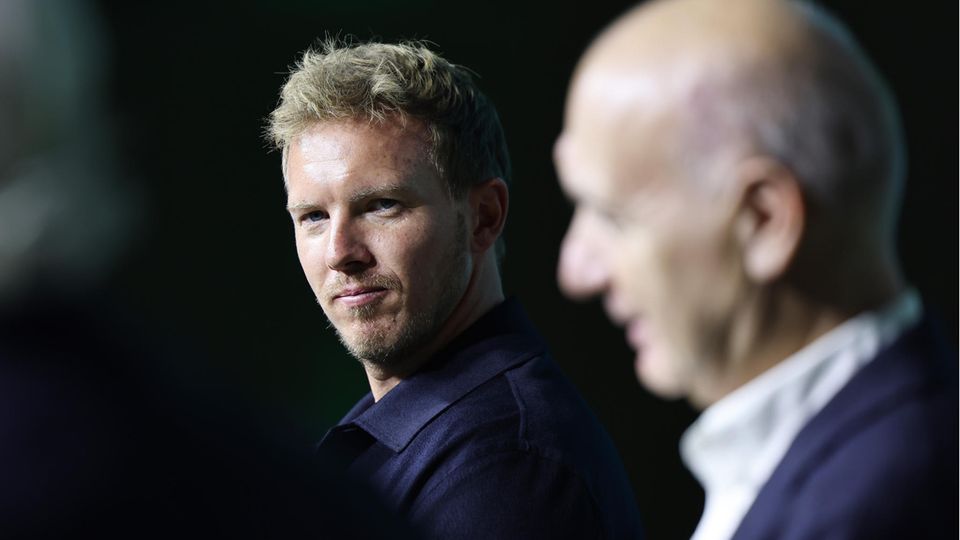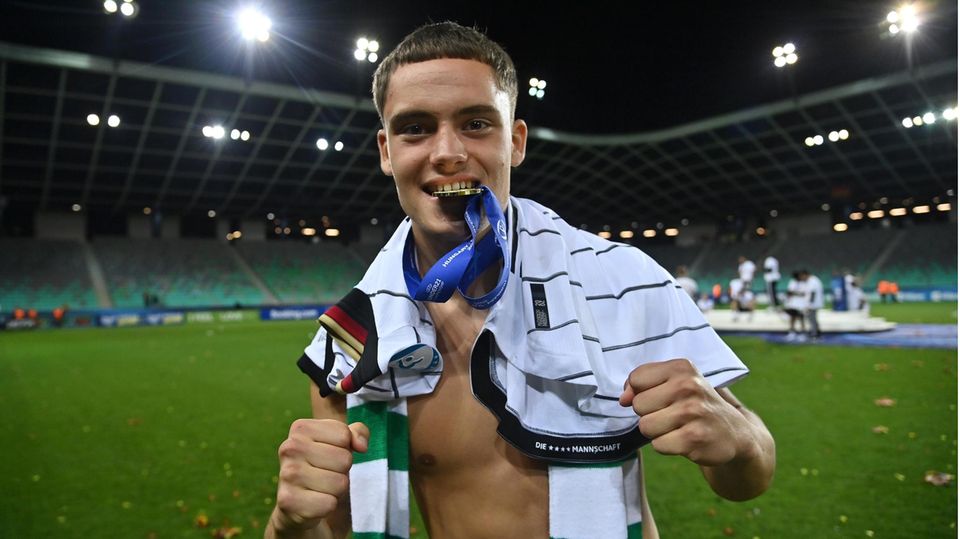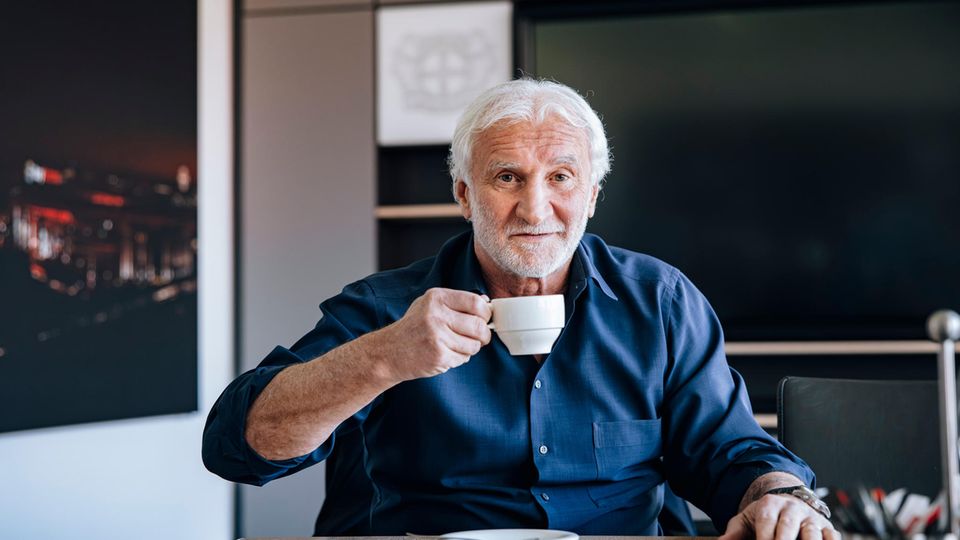Germany vs. Mexico
The midfield axis of Musiala and Wirtz is the new national coach’s greatest discovery to date
Florian Wirtz and Jamal Musiala harmonized right away
© William Volcov/ZUMA Press Wire
During the ten-day trip to the USA, Julian Nagelsmann formed a powerful team out of a small group of intimidated players – because he managed to find new positions on the pitch for many players.
This Wednesday, at 6:10 p.m. local time, the German national team will fly from Newark back to Frankfurt. Before the players’ paths forked, held Julian Nagelsmann gives a speech in the locker room at Lincoln Financial Field in Philadelphia. It could have been a long speech, because in Tuesday’s evening game against Mexico everything that currently characterizes Nagelsmann’s team – and what makes it so vulnerable and vulnerable – was once again highlighted.
Julian Nagelsmann: “We have never trained a team that implements things so quickly”
But the national coach didn’t go into a deeper analysis; he would discuss the wild 2-2 later. Instead, Nagelsmann paid his players a compliment. “I told them that I have never coached a team that implements things so quickly,” reported Nagelsmann after he left the dressing room. “I am 100 percent convinced that we will be successful.”
This eulogy was a rhetorical device. During the past ten days in the United States, Nagelsmann has stood out as a star speaker. He only wanted to see opportunities and potential, but no difficulties or hurdles. Is the shaky defense a problem area? “I don’t see any problem positions,” said Nagelsmann, although of course he knew better.
The days of doubt are over, that’s what he decreed in the USA. Nagelsmann also had no time for introspection. Four more international matches – two in November and two next spring – then the coach has to register his squad for the 2024 European Championships.
The best in the national team: The schoolyard principle applies to the DFB
It’s amazing what Nagelsmann has achieved in just a few training sessions in this team, which was still on the ground at the beginning of September after a 4-1 defeat against Japan and three failed friendly matches in June.
It only took a few simple steps for him to turn a squad of unsettled Flick players into a powerful Nagelmann team. He finally found the right place in the team for Ilkay Gündogan, he pushed him, the nominal number six, further forward – to the position he once held at Manchester City and in which he became the Champions League winner and English champion. He had Gündogan’s excursions into the offensive protected by Pascal Groß, who would previously only have been noticed by those familiar with the Premier League, namely as a defensive all-rounder for the middle class club Brighton & Hove Albion.
Nagelsmann’s biggest scoop, however, is an offensive axis consisting of Jamal Musiala and Florian Wirtz. For a long time it was considered impossible to have both playing at the same time. If the types are too similar, they just take each other’s sunshine, that was the unanimous verdict of the so-called experts.
What a misconception, says Nagelsmann. In the past, in the schoolyard, people would have always tried to choose the best footballers for their own team. Why should it be any different for the national team?
So he staggered Wirtz and Musiala, these two highly gifted players. Leverkusen’s Wirtz, 20, organized the build-up to the game and Munich’s Musiala, 20, was allowed to start anarchic storm runs through the opponent’s penalty area. It is surprising that Nagelsmann dared to do this, because he actually belongs to the caste of concept trainers who believe in the magic of the tactics board and disapprove of deviations from the so-called match plan.
Nagelsmann made the transition from club coach to national coach seamlessly
It is a testament to Nagelmann’s maturity that, contrary to his nature, he prescribes a portion of madness to the German game. It also shows how pragmatic he has become. There is nothing sacred left in his words; Nagelsmann looks soberly at his job. He made the transition from club coach to national coach seamlessly.
It can be heard from those around the team that Nagelsmann has gathered the entire DFB leadership behind him. There is a lot of trust in him – no one complains that he didn’t manage to find a coherent defensive formation either. Nagelsmann pushes the players back and forth like chess pieces. In two games he tried out five full-backs (Tah, Süle, Gosens, Raum, Thiaw), and no one complained. With Hansi Flick it would have been: How haphazard the coach is. With Nagelsmann it means: He has ideas, he tries something. Good this way.
Will Nagelsmann manage to stabilize the defense before the European Championships kick off next June? At the next course in November he wants to work on the finer details, which he announced on Tuesday. But there is much to suggest that Nagelsmann will shift the defensive work forward. “The four-man midfield is our showpiece,” he said in Philadelphia. In the future, the opponent’s attack waves should be broken here so that the defense has an easier time.
International matches against Turkey in Berlin and against Austria in Vienna are scheduled for mid-November. Until then, Nagelsmann wants to stay in touch with his players and, for example, send them video snippets of key scenes. “National team is passion,” he says, “club is everyday life.”
A sentence full of pathos, it fits perfectly in the USA. Nagelsmann hopes that the effect will last, even if he now returns to everyday life in Germany.





